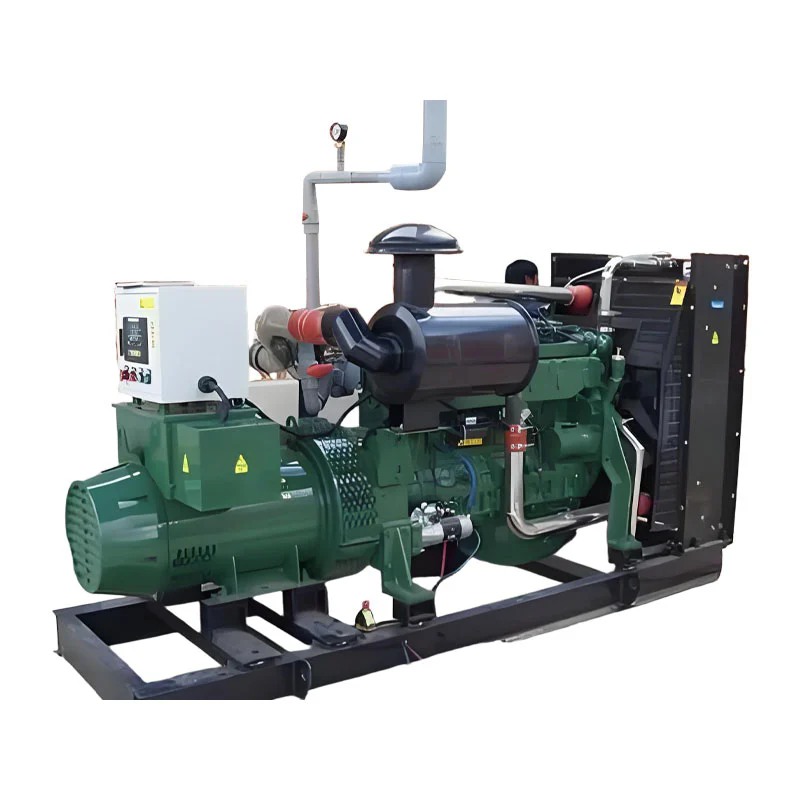Why Farm Biogas Generators Are the Future of Sustainable Agriculture
2025-08-26
In recent years, the agricultural industry has faced increasing pressure to adopt sustainable practices that reduce environmental impact and enhance energy efficiency. One promising solution is the integration of farm biogas generators, which convert organic waste into renewable energy. This technology not only addresses waste management issues but also provides a reliable and eco-friendly power source for farming operations.
Understanding Farm Biogas Generators
A farm biogas generator is a system that utilizes anaerobic digestion to break down organic materials such as manure, crop residues, and food waste, producing biogas primarily composed of methane. This biogas can then be used to generate electricity and heat, offering a dual benefit of energy production and waste reduction.
Key Components
-
Anaerobic Digester: A sealed tank where organic materials are broken down by microorganisms in the absence of oxygen.
-
Biogas Storage: A system to capture and store the produced biogas for later use.
-
Generator Set: An engine that burns the biogas to produce electricity and heat.
-
Heat Recovery System: Captures waste heat from the generator for use in heating applications.
Benefits
-
Renewable Energy Source: Produces clean energy from organic waste.
-
Waste Reduction: Helps manage and reduce agricultural waste.
-
Cost Savings: Reduces energy costs by providing an on-site power source.
-
Environmental Impact: Decreases greenhouse gas emissions by capturing methane that would otherwise be released into the atmosphere.
How Farm Biogas Generators Work
The process begins with the collection of organic waste materials, which are then fed into the anaerobic digester. Inside the digester, microorganisms break down the organic matter in an oxygen-free environment, producing biogas. This biogas is stored and can be used to fuel a generator set, which converts the energy into electricity and heat. The heat recovery system captures excess heat from the generator, which can be used for heating buildings or water, further enhancing the system's efficiency.
What to Consider When Implementing a Farm Biogas Generator
Before investing in a farm biogas generator, it's essential to evaluate several factors to ensure the system meets your agricultural needs:
1. Scale of Operation
Determine the size of the generator required based on the amount of organic waste your farm produces and your energy consumption needs. Smaller farms may benefit from compact systems, while larger operations might require more extensive setups.
2. Feedstock Availability
Assess the availability and consistency of organic materials for digestion. A steady supply of feedstock is crucial for continuous energy production.
3. Regulatory Compliance
Ensure that the biogas system complies with local regulations regarding emissions, waste management, and energy production.
4. Economic Feasibility
Conduct a cost-benefit analysis to determine the financial viability of the system, considering installation costs, maintenance, and potential savings on energy bills.
5. Technical Support
Choose a reputable supplier that offers comprehensive support, including installation, maintenance, and troubleshooting services.
Farm Biogas Generator FAQs
Q1: What types of organic materials can be used in a farm biogas generator?
A1: Farm biogas generators can process various organic materials, including manure, crop residues, food waste, and sewage sludge.
Q2: How much energy can a farm biogas generator produce?
A2: The energy output depends on the size of the system and the amount of feedstock available. For example, a 500 kW generator can produce sufficient electricity to power a large farm operation.
Q3: What are the maintenance requirements for a biogas generator?
A3: Regular maintenance is essential to ensure optimal performance. This includes monitoring the digester's health, checking gas production rates, and servicing the generator set.
Q4: Can the heat produced by the generator be utilized?
A4: Yes, the heat generated can be captured and used for space heating, water heating, or drying purposes, enhancing the system's overall efficiency.
Q5: Are there financial incentives for installing a farm biogas generator?
A5: Many regions offer subsidies, grants, or tax incentives to encourage the adoption of renewable energy technologies like biogas generators.
Farm biogas generators present a sustainable solution for agricultural operations, turning organic waste into valuable energy while reducing environmental impact. By carefully considering factors such as scale, feedstock availability, and regulatory compliance, farmers can implement these systems to enhance energy efficiency and contribute to a greener future.
For more information on farm biogas generators and to explore tailored solutions for your agricultural needs, contact us today.
